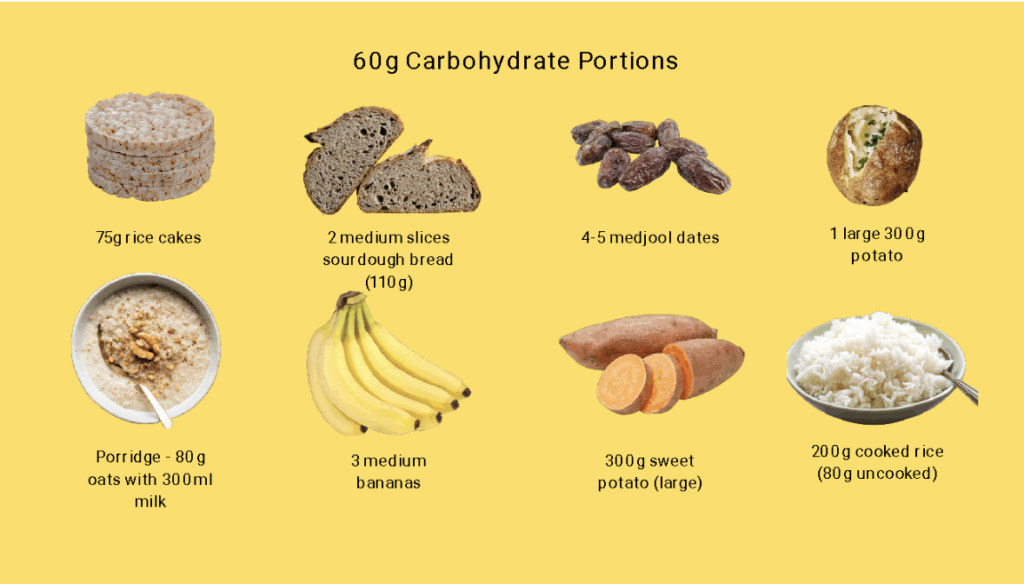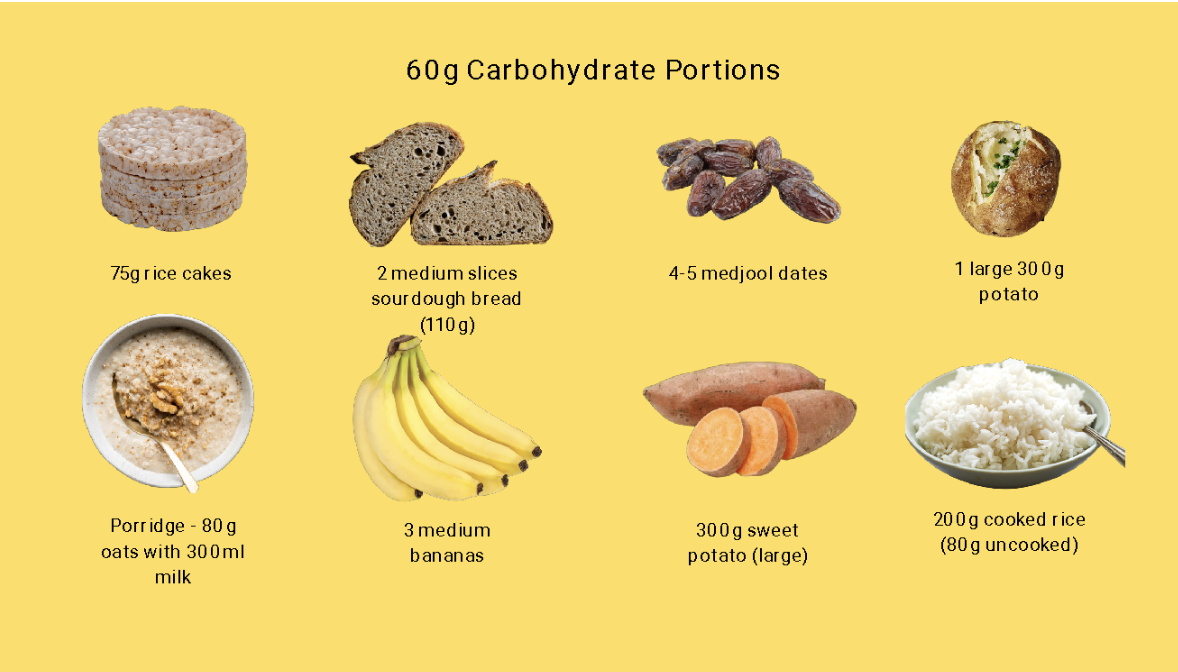
Foods with Glycogen: A Comprehensive Guide for Athletes and Health Enthusiasts
Glycogen, the stored form of glucose, plays a crucial role in energy metabolism, particularly for athletes and individuals with active lifestyles. Understanding which foods with glycogen can help replenish energy stores is essential for optimizing performance and recovery. While the direct presence of glycogen in foods is limited, certain foods facilitate glycogen synthesis in the body. This article delves into the science of glycogen, explores the foods that support its production, and provides practical advice for incorporating these foods into your diet.
Understanding Glycogen: The Body’s Energy Reserve
Glycogen is a polysaccharide of glucose that serves as the primary form of glucose storage in animals, including humans. It is primarily stored in the liver and muscles. The liver’s glycogen stores are used to maintain blood glucose levels, ensuring a constant energy supply to the brain and other organs. Muscle glycogen, on the other hand, is used locally to fuel muscle contractions during physical activity. When the body needs energy, glycogen is broken down into glucose through a process called glycogenolysis.
The amount of glycogen stored in the body is limited. Typically, an average adult can store around 100 grams of glycogen in the liver and approximately 400 grams in the muscles. These stores are crucial for sustained energy during exercise and periods between meals. Depletion of glycogen stores can lead to fatigue, reduced performance, and impaired recovery. Therefore, consuming the right foods with glycogen-supporting nutrients is vital.
The Role of Carbohydrates in Glycogen Synthesis
While you won’t find foods with glycogen in the sense of directly consuming pre-formed glycogen (as it’s broken down during digestion), the primary dietary factor influencing glycogen synthesis is carbohydrate intake. Carbohydrates are broken down into glucose, which then can be used to replenish glycogen stores. The type and timing of carbohydrate consumption can significantly impact glycogen replenishment rates.
Simple vs. Complex Carbohydrates
Simple carbohydrates, such as those found in fruits, honey, and refined grains, are quickly digested and absorbed, leading to a rapid increase in blood glucose levels. This can be beneficial for quickly replenishing glycogen stores immediately after exercise. Complex carbohydrates, found in whole grains, legumes, and starchy vegetables, are digested more slowly, providing a sustained release of glucose and a more gradual glycogen replenishment.
Choosing the right type of carbohydrate depends on your specific needs. For instance, after an intense workout, consuming simple carbohydrates along with protein can help quickly restore muscle glycogen. During periods of lower activity, complex carbohydrates are a better choice for maintaining stable blood glucose levels and supporting overall energy balance.
Top Foods to Support Glycogen Replenishment
Although you won’t find foods with glycogen directly, focus on consuming foods rich in carbohydrates to support glycogen synthesis. Here are some of the best options:
- White Rice: A readily available source of carbohydrates that is easily digested, making it an excellent choice for post-exercise glycogen replenishment.
- Potatoes (especially white potatoes): Potatoes are rich in carbohydrates and provide a good source of potassium, an electrolyte important for muscle function.
- Sweet Potatoes: While sweet potatoes are also a good source of carbohydrates, they offer additional nutritional benefits, including vitamins A and C.
- Oats: Oats are a complex carbohydrate that provides sustained energy release and is a good source of fiber.
- Quinoa: A complete protein and a good source of complex carbohydrates, quinoa is a versatile grain that can be incorporated into various meals.
- Fruits (Bananas, Apples, Berries): Fruits contain simple sugars that can quickly replenish glycogen stores, especially when consumed after exercise. Bananas are particularly beneficial due to their potassium content.
- Whole Grain Bread: Provides a sustained release of glucose, making it a good choice for maintaining stable blood glucose levels.
- Pasta: A versatile source of carbohydrates that can be easily incorporated into meals. Choose whole wheat pasta for added fiber.
- Legumes (Beans, Lentils): Legumes are a good source of complex carbohydrates, protein, and fiber, making them a nutritious choice for sustained energy.
Optimizing Glycogen Replenishment: Timing and Strategies
The timing of carbohydrate intake is crucial for optimizing glycogen replenishment. The period immediately after exercise (within 30-60 minutes) is often referred to as the “glycogen window,” as the body is most receptive to replenishing glycogen stores during this time. Consuming a combination of carbohydrates and protein during this window can maximize glycogen synthesis and promote muscle recovery.
Post-Exercise Nutrition
After a workout, aim to consume 1-1.2 grams of carbohydrates per kilogram of body weight. For example, a 70kg (154 lbs) individual would need to consume 70-84 grams of carbohydrates. This can be achieved through a combination of foods with glycogen-supporting nutrients, such as a banana with a protein shake, a bowl of oatmeal, or a serving of white rice with lean protein.
Carbohydrate Loading
For endurance athletes, carbohydrate loading is a strategy used to maximize glycogen stores before a competition. This involves gradually increasing carbohydrate intake in the days leading up to the event while reducing training intensity. The goal is to supercompensate glycogen stores, providing a greater energy reserve during the event. [See also: Carbohydrate Loading for Endurance Athletes]
The Impact of Diet on Glycogen Levels
A well-balanced diet that includes a variety of carbohydrate sources is essential for maintaining optimal glycogen levels. However, certain dietary patterns can impact glycogen stores. For example, low-carbohydrate diets, such as the ketogenic diet, can deplete glycogen stores, leading to reduced performance in high-intensity activities.
Low-Carbohydrate Diets
While low-carbohydrate diets can be effective for weight loss and blood sugar control, they may not be suitable for athletes or individuals engaged in intense physical activity. When carbohydrate intake is restricted, the body relies more on fat for fuel, which can be less efficient for high-intensity activities. If you are following a low-carbohydrate diet, it is important to monitor your energy levels and adjust your diet as needed to support your activity levels.
High-Protein Diets
High-protein diets can also impact glycogen levels. While protein is essential for muscle repair and growth, it does not directly contribute to glycogen synthesis. In fact, excessive protein intake can interfere with carbohydrate metabolism and reduce glycogen replenishment rates. It is important to balance protein intake with adequate carbohydrate intake to support glycogen stores.
Glycogen and Blood Sugar Regulation
Glycogen plays a crucial role in blood sugar regulation. When blood glucose levels are high, insulin stimulates the uptake of glucose by the liver and muscles, where it is converted into glycogen for storage. When blood glucose levels are low, glycogen is broken down into glucose and released into the bloodstream to maintain stable blood sugar levels.
Diabetes and Glycogen Metabolism
Individuals with diabetes may have impaired glycogen metabolism. In type 1 diabetes, the lack of insulin can prevent glucose from being stored as glycogen, leading to elevated blood glucose levels. In type 2 diabetes, insulin resistance can reduce the efficiency of glycogen synthesis. Managing blood sugar levels through diet, exercise, and medication is essential for individuals with diabetes to maintain healthy glycogen levels.
Practical Tips for Incorporating Glycogen-Supporting Foods
- Plan your meals around your activity levels: Consume more carbohydrates on days when you are more active to support glycogen replenishment.
- Prioritize post-exercise nutrition: Consume a combination of carbohydrates and protein within 30-60 minutes after exercise.
- Choose whole, unprocessed foods: Focus on whole grains, fruits, vegetables, and legumes as your primary sources of carbohydrates.
- Stay hydrated: Drink plenty of water to support glycogen synthesis and overall performance.
- Monitor your energy levels: Pay attention to how your body feels and adjust your diet as needed to support your activity levels.
Conclusion: Fueling Your Body with the Right Foods
While foods with glycogen don’t exist in the direct sense, understanding the role of carbohydrates in glycogen synthesis is essential for optimizing energy metabolism and supporting physical performance. By incorporating a variety of carbohydrate-rich foods into your diet and timing your meals around your activity levels, you can effectively replenish glycogen stores and fuel your body for optimal performance. Remember, a balanced diet that includes a variety of nutrients is key to overall health and well-being. Consult with a registered dietitian or sports nutritionist for personalized advice on optimizing your diet to support your specific needs. Remember to focus on foods with glycogen-supporting nutrients for the best results.
By understanding the science behind glycogen and making informed food choices, athletes and health enthusiasts can unlock their full potential and achieve their performance goals. Choosing the right foods with glycogen boosting properties is key to success. [See also: The Importance of Post-Workout Nutrition]

